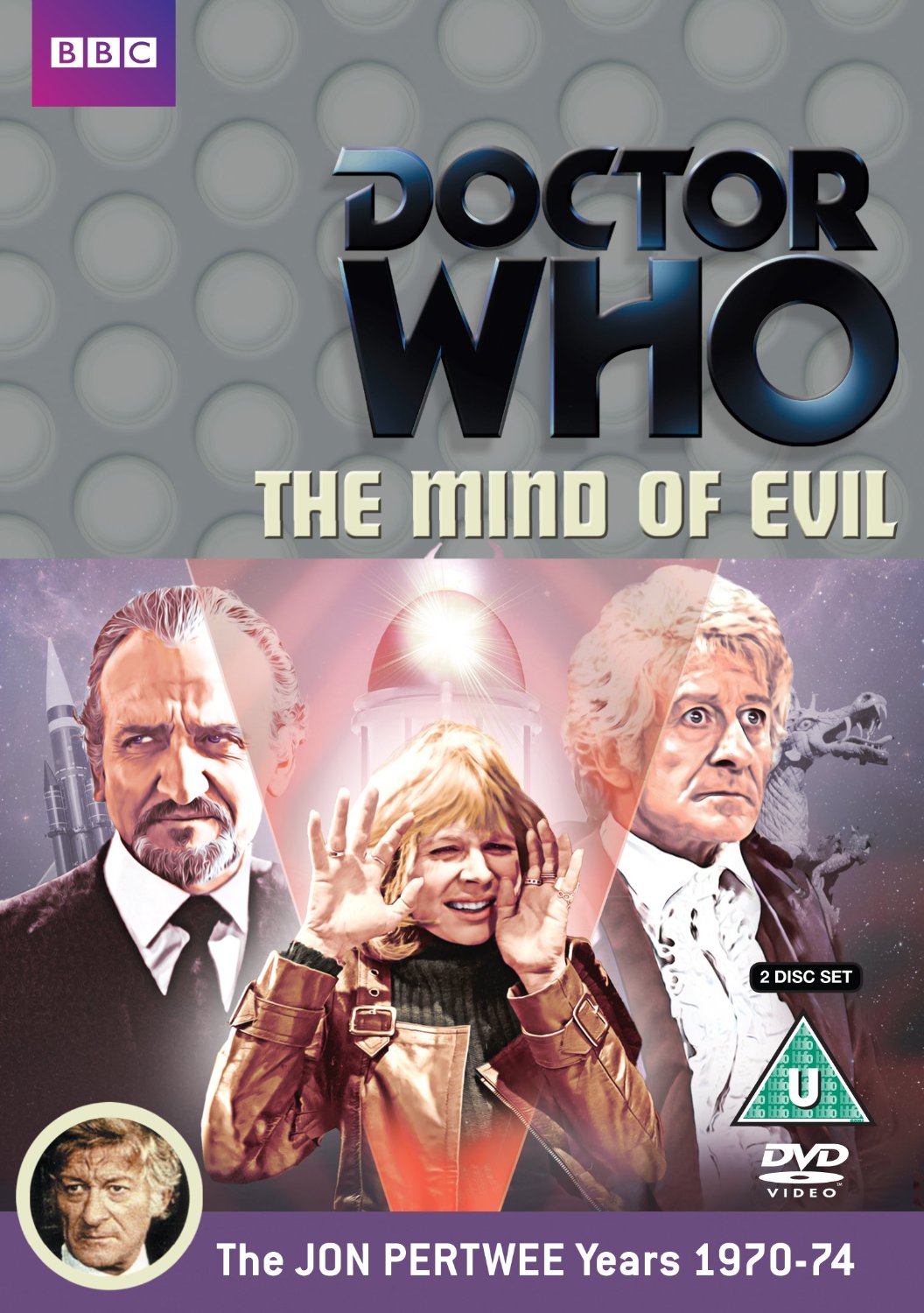
Aired 30 January – 6 March 1971
For years ‘The Mind of Evil’ existed only as a black-and-white copy of the original televised colour edition, but painstaking digital reconstruction has recently restored the second serial of the eighth series to its original glory, allowing it to fit beside its Pertwee counterparts seamlessly.
‘The Mind of Evil’ is another prime example of the paradigm shift Doctor Who experienced in the early Pertwee years. With the Third Doctor still exiled on Earth, working with the militaristic UNIT and without essential knowledge of the TARDIS, the stories necessarily become much more topical and politically relevant as the series also temporarily foregoes its more classic science fiction elements for a greater focus on action and adventure instead. The eighth series in particular is notable for introducing the nefarious Master to the franchise, and Roger Delgado reprises his role form ‘The Terror of the Autons’ to wonderful effect as the linking force between two seemingly disparate storylines involving the sabotage of an international peace conference and a brainwashing rehabilitation experiment with very unintended consequences.
Six months after the Doctor marooned the Master on Earth as well, the fascinating game of intrigue and one upmanship the two foes play- all the while tempered with a fierce mutual respect- continues. Not to be outdone by the complexity of his pervious plan, the Master returns here with an incredibly complex scheme, the first part seeing him masquerading as Emile Keller, the inventor of an aggression-reducing machine that can also be used to attack people with their greatest fears. Using Stangmoor Prison as a base, the convicts he sets free become willing accomplices to his plan. He then hypnotizes Chin Lee, the Chinese representative at the peace conference, to heighten tensions between the USA and China, at the same time co-opting a nuclear missile for his own means.
The end result is very much two distinct Doctor Who stories combined into one, with the fascinating ethical exploration of removing aggressive tendencies later giving way to more action-oriented espionage as the clock continues ticking. Indeed, as the Doctor claims victory as his opposition to the machine is proven correct when a prisoner’s mind is fried leaving behind an eerily placid husk of a man, a quick line about the necessity of choosing to be good over evil speaks volumes. Unfortunately, once the machine is revealed to be evil by association with the Master’s evil plot, this potentially fascinating moral discussion is more or less dropped completely. Even if the story of the machine is never really explored, the Master believes it to be intelligent and the Doctor believes it to be one of the deadliest threats humanity has ever faced, and the evidence does certainly support it being a rather voracious mental parasite. Likewise, its ability to learn to teleport itself through the prison is also a thoroughly frightening prospect even if it does verge into more surreal territory. Strangely, the unpredictability of the machine’s parasitic tendencies lead the Master to lure the Doctor to the prison in order to make him take control of the situation rather than to kill him. This takes away from the menace of the Master to some degree since he has clearly not thought about all of the ramifications before implementing his plan, but it also- in retrospect- shows the beginning of the evolution of his ability to make these grandiose plans.
Even though the Doctor is confronting the Master who plans to unleash nuclear war upon the world and rule whatever survives, it’s fascinating to watch Pertwee portray his incarnation as a man thoroughly fed up with his circumstances and unafraid to vent his frustration at others. Born out of punishment from the Time Lords, the Third Doctor somehow blends a yearning for respect with his own disrespect for Earth’s establishments, his innately charming likability equaled by his brash outbursts of arrogance and temper. Jo Grant, the Brigadier, and many other UNIT comrades do help soften what could easily become an overly confrontational Doctor, and the subtle evolution of this character compared to his earlier adventures is very enjoyable to watch.
‘The Mind of Evil’ is a fine addition to the Pertwee library, especially now that all episodes have been restored to their original glory. Though the rivalry between the Doctor and the Master still seems more in line with a cosmic game even as the stakes for Earth are raised higher and higher, Pertwee and Delgado share an undeniable chemistry and charisma that easily carry the weight of two distinct stories brought into one slightly uneven experience.


Leave a Reply